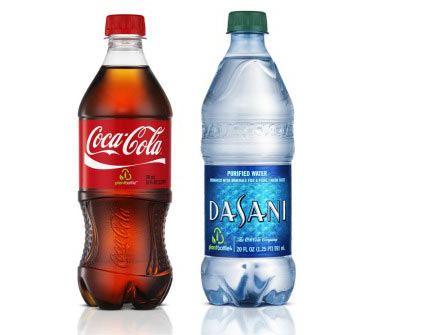 As a raw material for many chemical industrial products such as solutions, fertilizers, pesticides, and plastics, the price of oil has soared along with the global economic crisis and the turmoil in the Middle East. Many chemical industries relying on oil not only suffer from rising raw material prices, but also What to face is how to save energy, reduce emissions, achieve low carbon, and protect the environment. As a beverage giant, Coca-Cola has realized this.
As a raw material for many chemical industrial products such as solutions, fertilizers, pesticides, and plastics, the price of oil has soared along with the global economic crisis and the turmoil in the Middle East. Many chemical industries relying on oil not only suffer from rising raw material prices, but also What to face is how to save energy, reduce emissions, achieve low carbon, and protect the environment. As a beverage giant, Coca-Cola has realized this. Coca-Cola Company, the world's largest beverage company, has a global 48% market share and two of the world's top three beverages (Coca-Cola is ranked first, Pepsi is second, and Low-calorie Coca-Cola is third).
Every day, Coca-Cola's products serve 1.7 billion people worldwide. There are more than 160 types of beverages, and the footprints cover more than 200 countries around the world, including soft drinks, sports drinks, dairy drinks, juices, tea and coffee. The influence of delicious and delicious is very amazing.
With sufficient supplies, packaging products have also become a problem that needs to be solved by the Coca-Cola Company and major beverage manufacturers. The European debt crisis, monetary tightening, and reduction in foreign exchange reserves have all caused oil prices to rise sharply. As a non-renewable resource, the digging of oil will also become non-environmental. While current consumers tend to be more environmentally friendly packaging materials, Coca-Cola, which relies on plastic as its primary packaging material, faces a big problem.
Coca-Cola has also been committed to the development of plant material packaging, using environmentally friendly alternatives to change the dependence of product packaging on plastics. The plant bottle is a new item of Coca-Cola. It looks the same as a plastic bottle, but it is made of 22.5% of PET plastic material based on plastic plants (this PET is a polyethylene terephthalate plastic, a The recycled materials are now widely used in Coca-Cola, 25% recycled PET and some "regular" PET made from petroleum. Coca-Cola said that they have found an area with sustainable plant material that will not harm ecology and production. It is understood that Brazil's current sugar cane is the only material that meets the requirements. Because they are located in tropical rain forests thousands of miles away, not only are they rich in rainwater, they are naturally irrigated, and animal excrement has become their natural organic fertilizer.
This recyclable packaging debuted at the Copenhagen World Climate Change Summit in Denmark in 2009. Currently, this packaging material product has been launched in the UK for a year. Coca-Cola plans to launch 5 billion bottles of plant bottle beverages in more than 20 countries around the world this year. By 2020, Coca-Cola hopes to recycle all plant material PET bottles.
Although the emergence of plant plastic bottles has brought new light to the beverage packaging market, given that this is not a completely green approach, plant plastics have high manufacturing costs and are above 60°C compared to plastics that were previously produced from oil or natural gas. Disadvantages such as easy deformation, there is no large-scale application. At present Coca-Cola is still using petroleum-based plastic packaging.
The facts also prove that even if plant bottle packaging can help Coca Cola to get rid of the status quo of relying on non-recyclable packaging, it is not a finished product. 77.5% of the material in the plant bottle is not plant-based, but rather is a petroleum-based compound: phthalic acid. It can be said that Coca-Cola has not yet found a practical green solution. Another point is that delicious and delicious has already purchased a large amount of sugarcane from Brazil. This move will inevitably drive up the price of sugarcane, or it will further strain resources.
At the same time, there are some other issues. Coca-Cola's low-carbon footprint and its use in other areas will also be subject to strict scrutiny. To produce one liter of Coca-Cola, you need to use 3.12 liters of pure water. But in India, the quality of purified water has also been questioned. People suspect that there are residual pesticides and other harmful chemicals in the water.
RICTRON Industrial Co., Ltd is a hight-tech OEM/ODM enterprise, we are specialized to produce the products such as fire smoke alarm, carbon monoxiede alarm, gas alarm, water alarm, smoke&co or gas&co combined alarms, and other products of R&D, manufactring and sales since 2008.
We continually strive to maintain our unwavering reputation through our exceptional product quality and customer service. We not only offer a complete line of superior quality products, but also work with our customers to develop new formulas and address the burgeoning market. So, we get so many goods response from our global customers. Welcome your exlusive customization of OEM and ODM, we will grow together and create brillant with you.
Combo Smoke Co Detector,Co And Smoke Detector Combo,2 In 1 Smoke And Carbon Monoxide Alarm,Combo Smoke And Carbon Monoxide Detector
Rictron Industrial Co., Ltd , https://www.szrictron.com